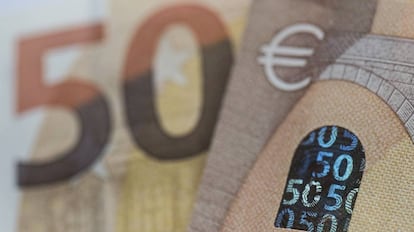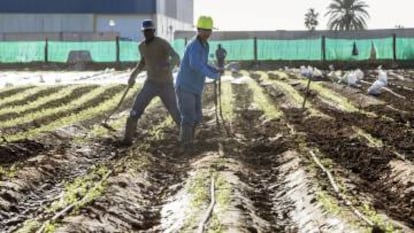The Spanish cannery owner who became a master counterfeiter
Spain’s biggest maker of fake bills faces prison over money-printing operation in remote village
He literally turned his cannery, in the heart of Murcia’s farmland, into a money-making factory. Juan Pedro González Sánchez is considered by the Spanish National Police to be the country’s top currency counterfeiter and one of Europe’s most accomplished producers of fake bills.

After being arrested three times as he was about to put millions of counterfeit euros into circulation, González Sánchez was scheduled to stand trial on Tuesday at the provincial High Court of Murcia. Prosecutors are seeking a 15-year prison sentence.
Police first tracked him down in May 2007. A search of his home and cannery, in the village of Beniaján, unearthed around €8 million at various stages of production.
Officers found fake €50 notes that were so well made that even the European Central Bank had issued a warning about the high-quality copies.
The trial date for the 2007 arrest was scheduled for March 2016, but González Sánchez failed to show up
Investigators estimate that González Sánchez had worked in this line of business for at least a decade.
Around three million fake notes have already been taken out of circulation, but police believe there could be another two million or so in the pockets of Spaniards and other Europeans. The exact number is practically impossible to know, however.
A former cannery
Following his arrest in 2007, González Sánchez spent 14 months in preventive custody. But as soon as he was charged and released pending trial, he went back to his profitable business of making fake money.
He was arrested again in 2011 with another €1.5 million ready to hit the streets, and a further €1.5 million at the production stage.

In both cases, the police found top-of-the-range printing presses and other specialized equipment that neighbors never suspected were sitting inside the former cannery.
The family factory had shut down years earlier, but González Sánchez reopened it under the business name Jugosa (Juicy). He went there every day and left again in his van to make deliveries. There wasn’t a lot of business, but then the owner did not live ostentatiously either. There was nothing to make him stand out from the other villagers.
Besides the material for his counterfeiting activities, the police also found equipment for making fake ID cards and residency permits. There was also over 1,000 kilograms of hashish.
Another 13 individuals were arrested and charged with helping the main suspect put the forged documents and money into circulation.
The trial date for the 2007 arrest was scheduled for March 2016, but González Sánchez failed to show up. Four months later, the police located him inside a detached home in San Pedro del Pinatar (Murcia), where he was at it again: he had close to €2 million in fake notes ready to go.
He was arrested once more, and has not been released from prison since. If nothing else goes wrong, Spain’s top counterfeiter will face a judge today. Besides the 15-year prison sentence, prosecutors want González Sánchez to pay a €10 million fine – in real currency, that is.
English version by Susana Urra.
Tu suscripción se está usando en otro dispositivo
¿Quieres añadir otro usuario a tu suscripción?
Si continúas leyendo en este dispositivo, no se podrá leer en el otro.
FlechaTu suscripción se está usando en otro dispositivo y solo puedes acceder a EL PAÍS desde un dispositivo a la vez.
Si quieres compartir tu cuenta, cambia tu suscripción a la modalidad Premium, así podrás añadir otro usuario. Cada uno accederá con su propia cuenta de email, lo que os permitirá personalizar vuestra experiencia en EL PAÍS.
¿Tienes una suscripción de empresa? Accede aquí para contratar más cuentas.
En el caso de no saber quién está usando tu cuenta, te recomendamos cambiar tu contraseña aquí.
Si decides continuar compartiendo tu cuenta, este mensaje se mostrará en tu dispositivo y en el de la otra persona que está usando tu cuenta de forma indefinida, afectando a tu experiencia de lectura. Puedes consultar aquí los términos y condiciones de la suscripción digital.








































